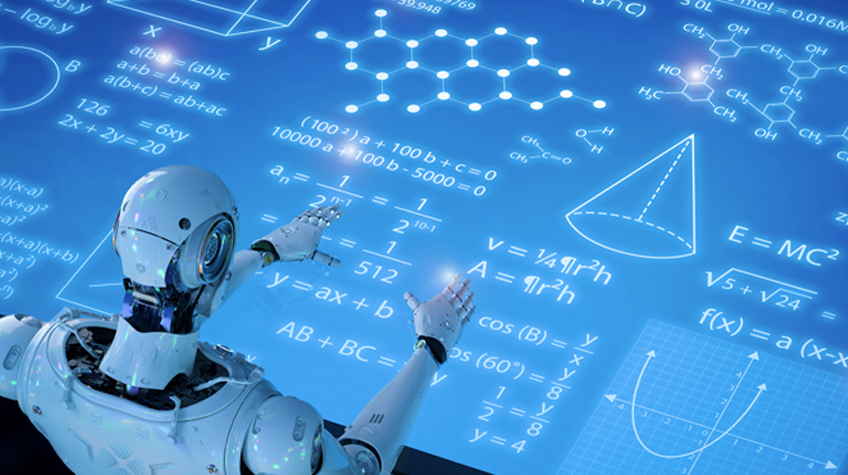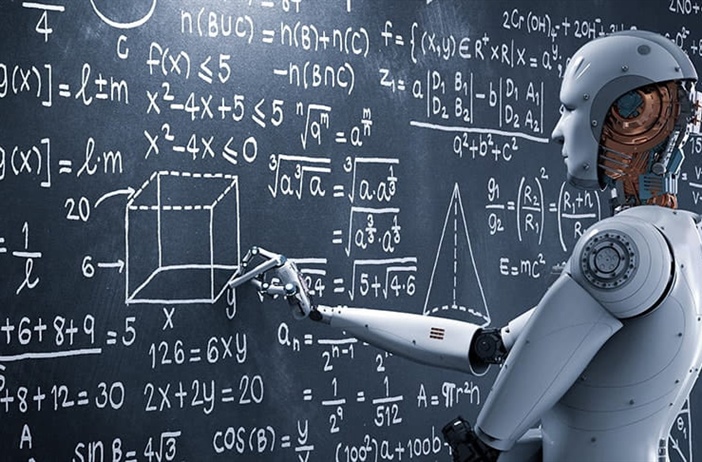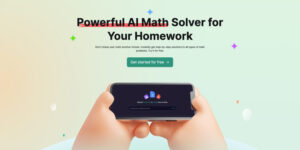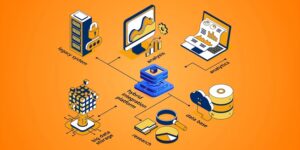
Introduction
In recent years, artificial intelligence (AI) has arisen as a game-changing technology with the potential to transform the educational system completely. Learning environments, student feedback, and administrative duties can benefit from AI because of its capacity to handle large amounts of data and draw meaningful conclusions. Education can be made better, student results can be increased, and students can be better prepared for the problems of the twenty-first century if we adopt AI technology into education. Here, it’s crucial to investigate how artificial intelligence (AI) might be used to revamp education while simultaneously addressing the social and ethical concerns that come along with its widespread adoption. In this paper, we’ll look at some of the present and prospective future uses in the classroom.
What is AI
“artificial intelligence” (AI) refers to developing intelligent machines that can complete tasks that typically require human intelligence. Some examples of these tasks include learning, rationale, problem-solving, perception, & decision-making. AI systems do pattern recognition and trend identification using algorithms & data to generate predictions. They can learn from enormous volumes of data, which allows their accuracy and efficiency to increase steadily over time. Artificial intelligence in applications can be found in many industries, including medicine, business, transportation, and education. The purpose of artificial intelligence (AI) is to develop computers that are capable of imitating human intelligence to accomplish difficult jobs, which will, in turn, improve our ability to find solutions to issues and the quality of our lives. While artificial intelligence (AI) has a lot of potentials, it also raises many ethical and societal questions that need to be solved before it can be used in a way that is both beneficial & responsible.
How can AI improve the quality of education?
Artificial intelligence (AI) has the potential to revolutionize the educational system by enhancing the standard of classroom instruction and individual student experiences. AI in education can improve student outcomes and prepare learners for the twenty-first century by helping to personalize instruction, provide real-time feedback, and streamline administrative duties.

➥ Personalized Learning
Personalization of educational experiences is one of the key advantages that artificial intelligence brings to education. Educational systems that AI powers can do data analyses on student performance, preferences, & learning styles to build individualized lesson plans. These plans might include a variety of instructional strategies, resources, and evaluations tailored to meet each student’s requirements, capabilities, and limitations.
In this matter, private A-level maths tutor can create targeted supplementary materials and provide one-on-one support to reinforce personalized learning objectives.
This strategy can potentially increase students’ levels of involvement, motivation, and academic accomplishment. Students in personalised learning situations are given more leeway and choice in how they complete assignments and go through the curriculum, empowering them to learn at their own speed and with greater responsibility for their own academic success.
Adaptive software & individualised lesson plans are two examples of how educators are using student data and technological tools to tailor the classroom experience for each student.
For Candidate who wants to advance their Artificial Intelligence Training and Certification Course is the best option.
➥ Real-Time Feedback
Students can receive real-time feedback from AI, which is essential for efficient learning. Assessment systems that AI drives can analyze student replies and provide quick feedback, enabling students to increase their grasp of the material while also improving their ability to remedy their mistakes. This strategy has the potential to assist students in remaining on track, recognizing areas in which they could improve, and bolstering their learning.
Check Now: Text Analytics | Introduction, Benefits and Applications
➥ Intelligent Tutoring Systems
Students can receive one-on-one tutoring through AI-powered intelligent tutoring systems, which is traditionally difficult to accomplish in regular classroom settings. These systems can adjust to the individual learner’s tempo, learning style, and degree of comprehension to deliver individualized training and feedback. This strategy can potentially improve student learning results, particularly for children who struggle in certain subject areas or have other unique educational requirements.
➥ Automated Administrative Tasks
AI models like Humata AI can expedite administrative operations such as grading, scheduling, and record-keeping, freeing time for teachers to focus on teaching & learning activities. Assignments can be analyzed and graded by AI-powered grading systems, which then provide ratings that are objective & consistent. Teachers’ workload may be reduced due to this strategy, freeing them up to concentrate on teaching methods that are more imaginative and interesting to their students.
The quality of learning & teaching experiences could see significant improvements due to the introduction of AI into the education system. Several of the most important ways artificial intelligence might improve student results and better prepare students for the challenges of the 21st century include personalized learning, real-time feedback, integrated learning systems, & automated administrative activities. Nonetheless, it is necessary to discuss the ethical and social consequences of AI in the classroom to make sure that such a technology is utilized in a way that is both beneficial and responsible.
RELATED: Which is Better Artificial Intelligence or Data Science?
Importance of AI in the education
AI (Artificial Intelligence) is bringing about a sea change in the education sector by improving how students and teachers acquire new knowledge. The following is a list of the most significant reasons why AI is vital in education:
➤ Personalized Learning:
Students’ data can be analyzed by tools powered by AI, which then provides individualized learning routes based on the student’s talents, strengths, and limitations. Students can learn at their own pace and in a manner that is catered to meet their requirements when using this kind of instruction.
➤ Efficient Teaching:
Tools that are driven by artificial intelligence can assist instructors in automating time-consuming administrative chores such as grading, managing attendance, and designing lessons. Because of this, teachers have more time to devote to really teaching and engaging in conversation with their pupils.
➤ Accessibility:
Tools driven by AI have the potential to ensure that students with disabilities as well as other special needs, have equitable access to educational opportunities. For instance, students with hearing or vision impairments may benefit from using voice recognition software since it enables them to study & communicate more efficiently.
➤ Adaptive Assessments:
Assessments can be provided via tools driven by AI that are adaptive, meaning they change the level of difficulty depending on how the learner has responded in the past. This enables educators to more correctly measure a student’s level of comprehension as well as provide focused feedback to aid in the student’s further development.
➤ Predictive Analytics:
AI-powered tools that use predictive analytics can identify students who are in danger of dropping behind in their coursework. These students can then receive extra support to remain on track.
In general, artificial intelligence is a vital tool for increasing the overall quality of education as well as the outcomes of learning. It is possible that as AI technology continues to progress and grow more sophisticated, it will have the ability to change the landscape of education and assist students in achieving success in a rapidly changing world.
Effect of AI in the future
AI, also known as artificial intelligence, is anticipated to have a significant influence on society in the years to come. The following is a list of possible effects of artificial intelligence that we may observe in the years to come:
➤ Automation of jobs:
Automation driven by AI may replace many of the jobs that are currently being done by humans. Because of this, the labour market will undergo considerable shifts, and people may be required to acquire new skills to maintain their employability.
➤ Improved healthcare:
Artificial intelligence can completely transform the healthcare industry by facilitating the earlier and much more accurate detection of diseases, forecasting possible health hazards, and developing more successful therapies.
➤ Enhanced productivity:
The automation of repetitive operations, the reduction of errors, and the improvement of the efficiency of processes are all ways that AI-powered automation can boost productivity across various industries.
➤ Smarter homes & cities:
Systems that AI powers have the potential to make our homes and communities more energy efficient and reliable by enhancing infrastructure management, minimizing waste, & optimizing energy use.
➤ Ethical concerns:
The development of artificial intelligence (AI) also brings significant ethical problems, such as the possibility for AI to be utilized for negative purposes, privacy issues, and bias in algorithm design.
The overall influence that artificial intelligence will have in the future will be determined by the manner in which it is developed & utilized. While artificial intelligence has the potential to provide tremendous benefits to society, it also raises significant difficulties that need to be addressed in order to ensure that its development & usage are responsible and result in benefits for everyone.
Related Post: Impact of AI in the real world
Conclusion:
One of the most revolutionary innovations of the twenty-first century is artificial intelligence (AI), which stands for artificial general intelligence. Artificial intelligence has the potential to completely transform the field of education due to its capacity to process massive volumes of data, recognize patterns, and make accurate predictions. AI has the potential to assist educators in personalizing the learning process, providing feedback in real-time, and automating administrative work. The quality of education can be improved, student results can be improved, and students can be better prepared for the future if we include artificial intelligence technology in the educational system.
Author Bio:
Archit Gupta is a Digital Marketer, and a passionate writer, who is working with MindMajix, a top global online training provider. He also holds in-depth knowledge of IT and demanding technologies such as Business Intelligence, Salesforce, Cybersecurity, Software Testing, QA, Data Analytics, Project Management, and ERP tools, etc.






